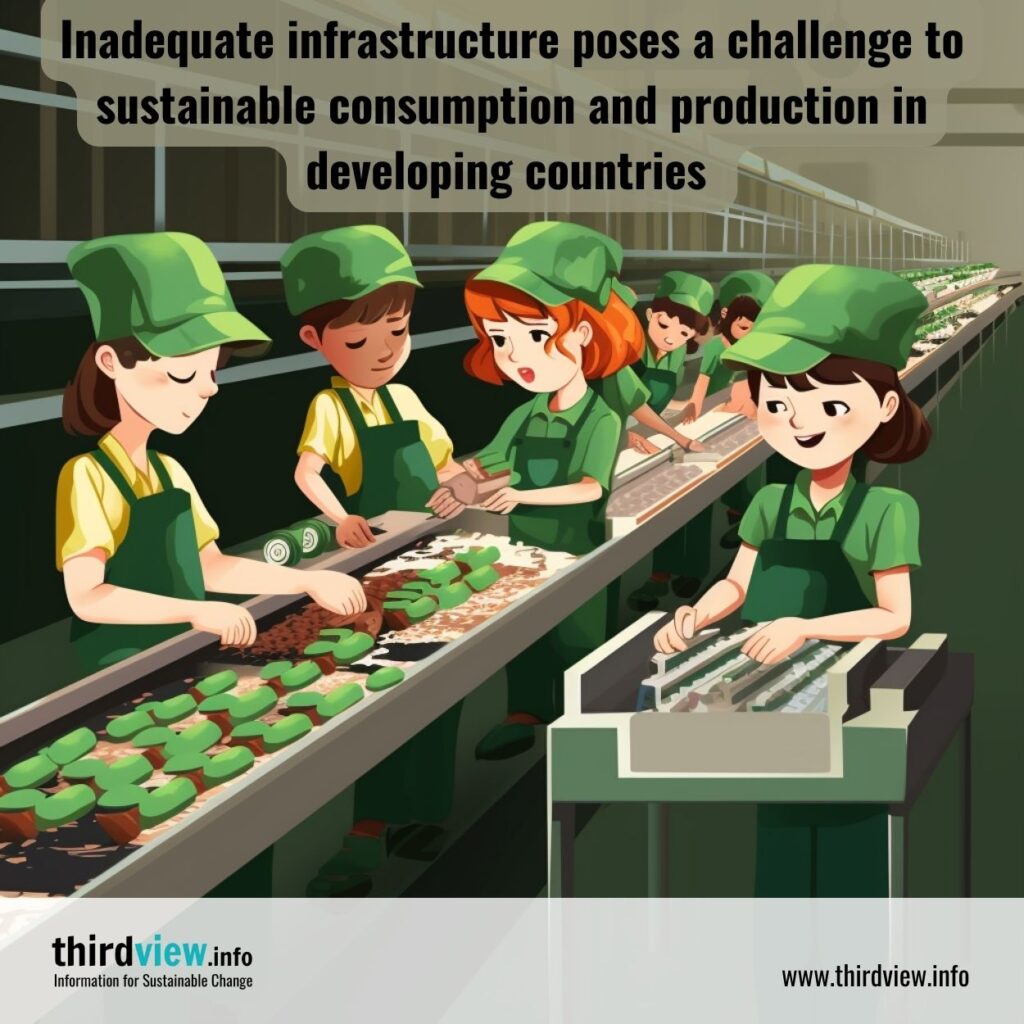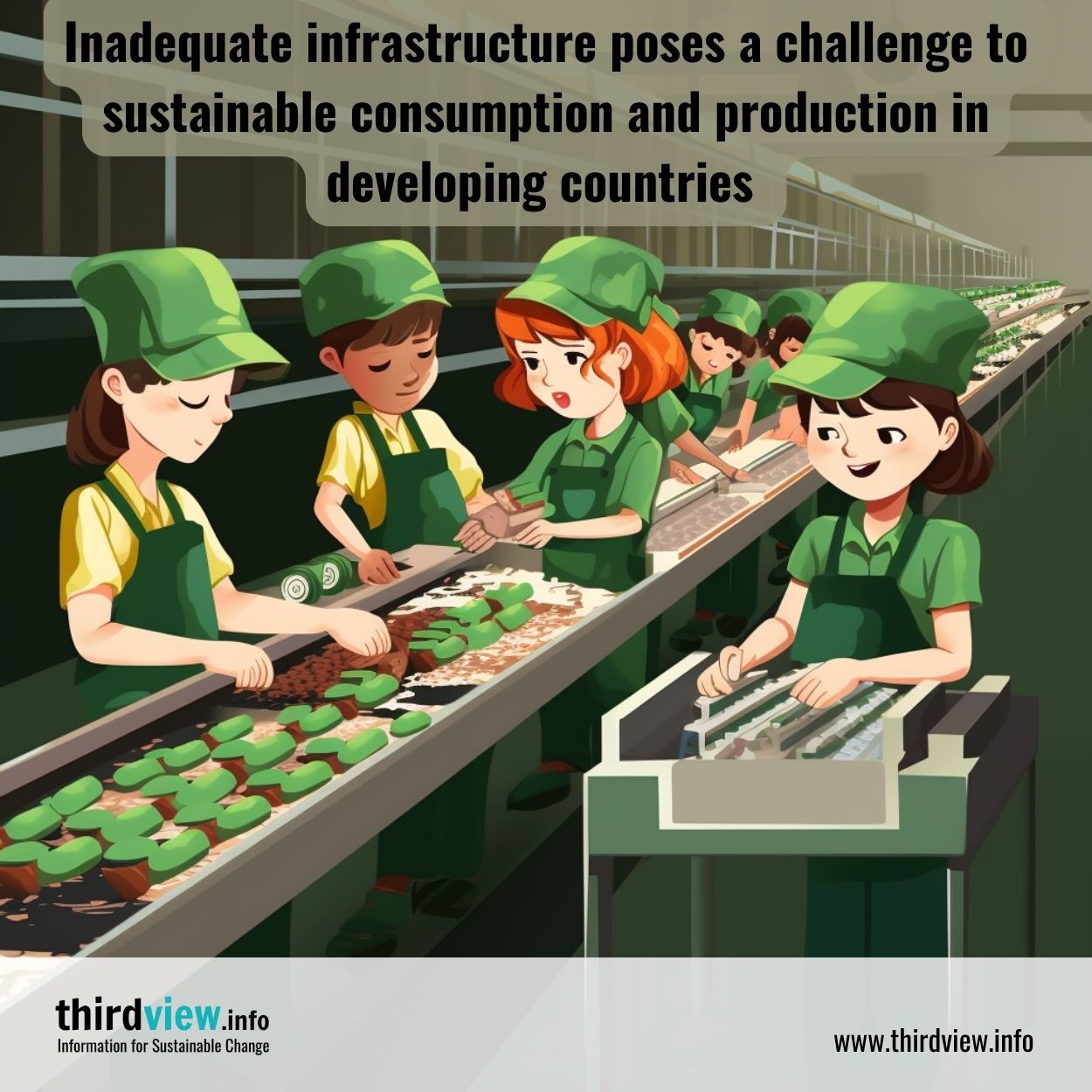Sustainable consumption and production is the key to a better future for everyone. It is essential to break the cycle of pollution, waste, and unsustainable resource extraction, but achieving sustainable consumption and production patterns is a complex challenge, especially for developing countries. In this post, we’ll look at the major challenges faced by developing countries in achieving sustainable consumption and production patterns and explore how we can overcome them.
Lack of Awareness and Education on Sustainable Consumption and Production
One of the primary challenges of achieving sustainable consumption and production in developing countries is the lack of awareness and understanding of the concept. Many people do not understand the importance of sustainable consumption and production or the impact that their actions have on the environment. To overcome this challenge, there is a need for education and awareness programs that target both individuals and businesses. Education can help people understand the need for sustainable consumption and production and provide them with knowledge of best practices.
Poverty and Limited Resources
Another challenge facing developing countries is poverty and limited resources. The majority of the population in these countries live in poverty and have limited access to resources such as clean water, energy, and food. Poverty and limited resources make it difficult to implement sustainable practices. For example, people living in poverty may not be able to afford renewable energy sources or sustainable food options. It is essential to address poverty and limited resources in developing countries to promote sustainable consumption and production practices.
Inadequate Infrastructure
Inadequate infrastructure is another challenge that impacts sustainable consumption and production in developing countries. Many countries lack the proper infrastructure to handle waste, recycle materials, or distribute resources efficiently. This can lead to pollution and waste, which ultimately contribute to unsustainable practices. Developing countries need to invest in infrastructure to support sustainable consumption and production practices.
Cultural Practices and Beliefs
Cultural practices and beliefs also pose a challenge to achieving sustainable consumption and production patterns in developing countries. Traditional practices, such as burning waste or using plastic bags, may be deeply ingrained in a culture, making it difficult to change. It is essential to understand and respect cultural practices while also promoting sustainable practices. Diverse approaches to sustainability should aim to understand cultural practices and viewpoints to foster engagement with communities.
Globalization and Consumerism
Finally, the problem of globalization and consumerism, often powered by developed countries’ policies, also affects sustainable consumption and production in developing countries. Developed countries often export waste and unsustainable practices to developing countries which often lack appropriate policy frameworks or have non-enforced laws. Consumers from developed countries also consume products that come from these countries, putting additional pressure on resources in developing countries. We need to recognize that the challenges of realizing sustainable consumption and production are not solely based in developing countries, and collective action must be taken by developed countries to support global sustainable practices.
In conclusion, achieving sustainable consumption and production patterns in developing countries is a complex challenge. Efforts must be made to address poverty, limited resources, inadequate infrastructure, cultural practices and beliefs, and global imbalances. But by working together to promote education, increase infrastructure development, and respect cultural practices while also changing outdated structures, we can overcome these challenges and move towards a more sustainable future. Embracing sustainable consumption can be an opportunity for developing countries aiming to achieve economic growth and prosperity by enabling a green and inclusive transition that rewards innovation, social justice, and environmental preservation. Let’s join forces to create a brighter and more sustainable future for everyone.


